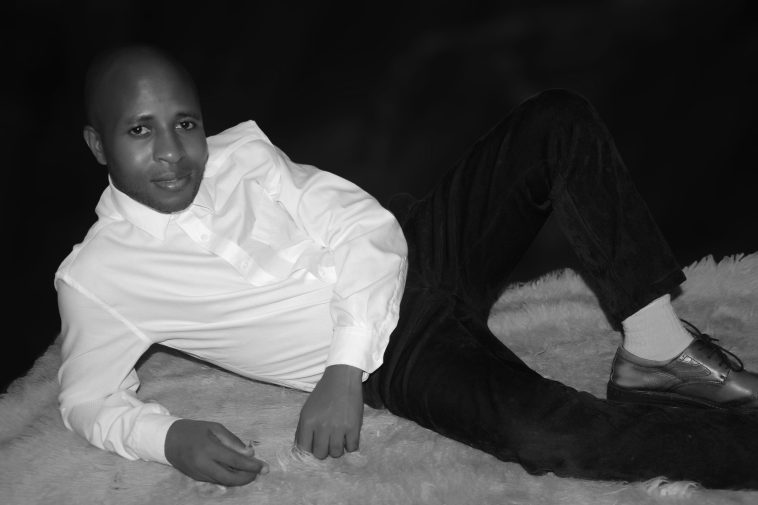An autobiographical memoir of a Ugandan Publicist & Humanitarian
Overview
As I reflect on my life’s journey, I’m reminded of the complexities that define me. While my nature is multifaceted – both guarded and spontaneous – I’ve learned to harness my contradictions to fuel my growth. With each accomplishment, whether big or small, I’ve come closer to understanding my purpose. This memoir combines my challenges, stoicism and ongoing quest for purpose that defines my life. As I move forward, I remain committed to exploring new possibilities and unlocking the freedom to live authentically, on my own terms. Now I feel better like I am close to attaining freedom and satisfaction through written expression. I grew up admiring and looking up to such a day having accumulated close-to-enough content to make up my own ordeal journal. A time when I would be confident to use my voice and how I know best. Through writing. Here we are.
My life has been a masterclass in contradictions—ordinary circumstances leading to delayed and sometimes unexpected outcomes. I have danced with darkness and emerged scarred, yet stronger. I have wrestled with doubt and risen defiant. Through this written account, I bear my soul, sharing the untold stories, unseen struggles, and may be triumphs that have forged me into the person I am today. I continue the hunt to understand the human experience, where vulnerability and resilience blur. I am both lucky and unlucky to be born and raised in a pre- and Neo-digital era where I’m expected to serve two generations. The offnet and on-net. Sometimes i blame myself with no regrets though. I branded myself as a millennial. Now I have to face the reality of operating with Gen Zs but still wear a conventional outfit. It’s not easy. Well, my journey perhaps encourages others to practice self-kindness, find their strength and purpose along their own path. It matters after everything, the confusion, the imposter syndrome and yes.. the mixed feelings and the hype.
This literature confronts the reality of living with a flawed past and the present that we can still luckily uphold — becomes the core. I will share untold revelations, inspired by many, and hopefully inspiring others – doing my own thing, no competition. Actually a lot of youth and people older to my fathers, uncles and aunties’ age tell me they are proud of me. Are they sure? I find myself asking when they are away. Sometimes I don’t get a chance to ask how and why. I let it slide. It still feels like society appreciates the outer coating. They don’t care about what happens behind the scenes of the so called ‘appreciated’. And that’s the reality. Maybe yes or no, I always desist. Such confusion is why I am compelled to put my life to summary and detail in writing. Through sharing my story, I hope to inspire others to embark on their own.
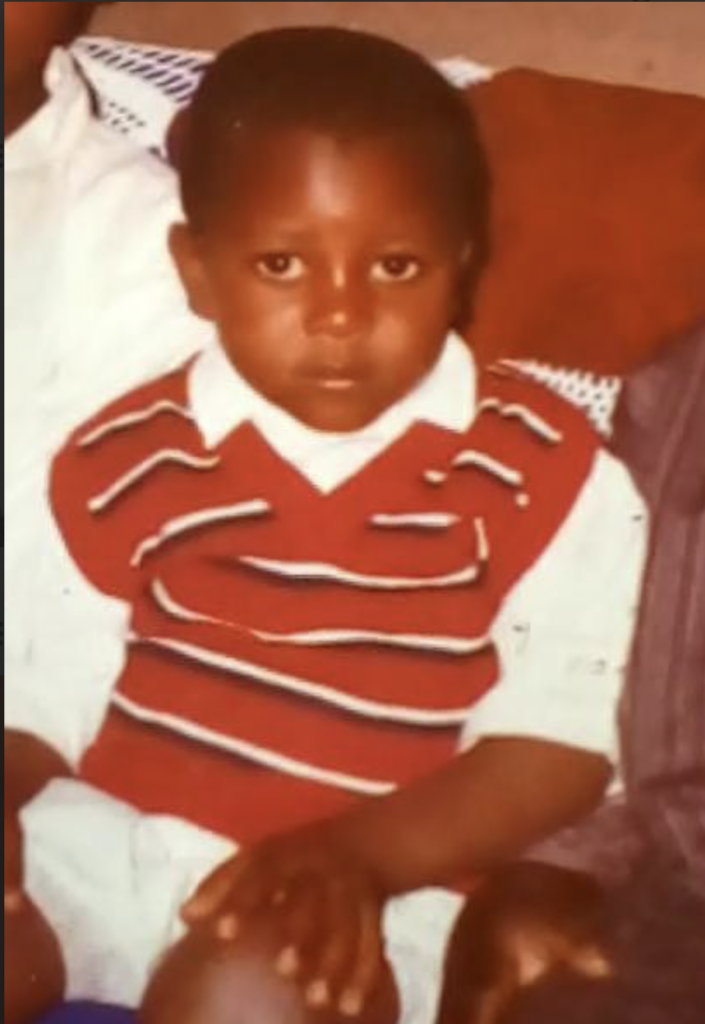
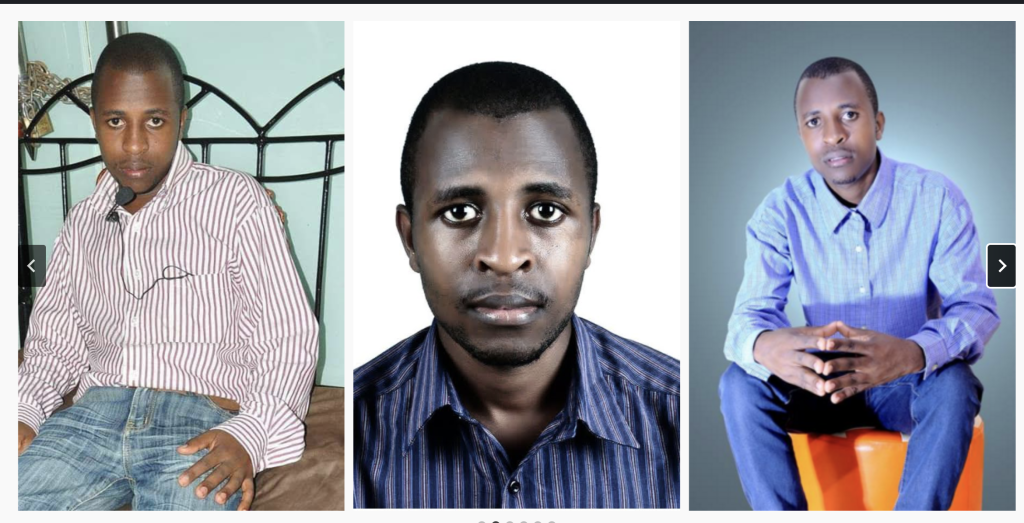 Phase 1: The Innocence of Beginnings
Phase 1: The Innocence of Beginnings
As a child, I entered the world and started viewing through a lens of innocence. The future appeared bright, though still folded in mystery. Each stage of my life seemed straightforward in my imagination, but the reality was different. As I matured, the complexities of life began to actualize, revealing the challenges that lay ahead. I didn’t have all the answers, but one thing was clear—I wasn’t cut out for the typical 9-to-5 job lifestyle. I’ve always craved a path that defies convention.
I lived and wanted to continue living both hard and a simple life but spearheading or be part of big things in the employment system. Anyways, if anyone wanted to ask what I can’t do with… it’s not a lot. I am only allergic to a lot of AC, Sleeping net, eating Tomato sauce.. weird? I grew up calling it different.
Growing up, I was fascinated by public figures—actresses, reporters, athletes, poets, musicians, case in point Steve Jean of Fenon Records, Mariah Carey, Jennifer Hudson, Lady Jay Dee, Jose Chameleon, Beyonce, publicists Bryan & Ann Morel (UK) and Red San. I remember reading Bukedde newspaper writings by Josephat Seguya covering events and all the sundry magazines. There was something captivating about the way they manouvered through their careers. I wanted to be part of that world, to understand what went on behind the scenes. For I was a writer, making blurbs and literary essays during holidays. I remember I used to write and send the manuscript work to my cousin Arnold Taremwa Hudson for corrections and tell me I am humorous but should avoid slang and Jargons. My interests were rooted in law, literature, and mass communication, but the school curriculum at that time felt too theoretical and rigid for me. I longed for practical experience, for something that allowed me to engage directly with the world I admired.
Phase 2: Perhaps A Natural Fit for the Spotlight support
While in school, I became the go-to student for entertainment news, always up to date with the latest happenings in Hollywood and national news, awards, press reviews and music countdowns. This admiration for media relations led me to out-of-no-ask goodwill volunteer publicity work for singer Iryn Namubiru during my secondary and university years as a fan. I admired her vocal technique and timbre. She came back to the Ugandan music industry at a time where it was not as dynamic as today. She bridged the parity of conventional genres (band, folk and pop) whilst the urban (Blu*3, Juliana, Fenon). And all sealed with vocals. The Brandy/Monica factor delivered in an effortless indigenous language – Luganda. And Perfectly. The industry changed a lot. That was around 2006-2013. In the said latter years at university I used to to burn music CDs bearing Iryn’s music across malls and music libraries. I used to do the same for Jackie Chandiru and move it across my peers and industry mates including at Judith Heard’s shop. That’s a story for another day. Sometimes I could miss class but make it up as i had made friends with the lecture. For Iryn and other Ugandan singers i liked, I wanted the whole world to listen to their voices. My dedication caught the attention of her then-manager, Thadeus Mubiru, which opened doors to new connections in the industry. He always updated me on what the upper management had in plan and I always pushed it to the public. Still as a fan.
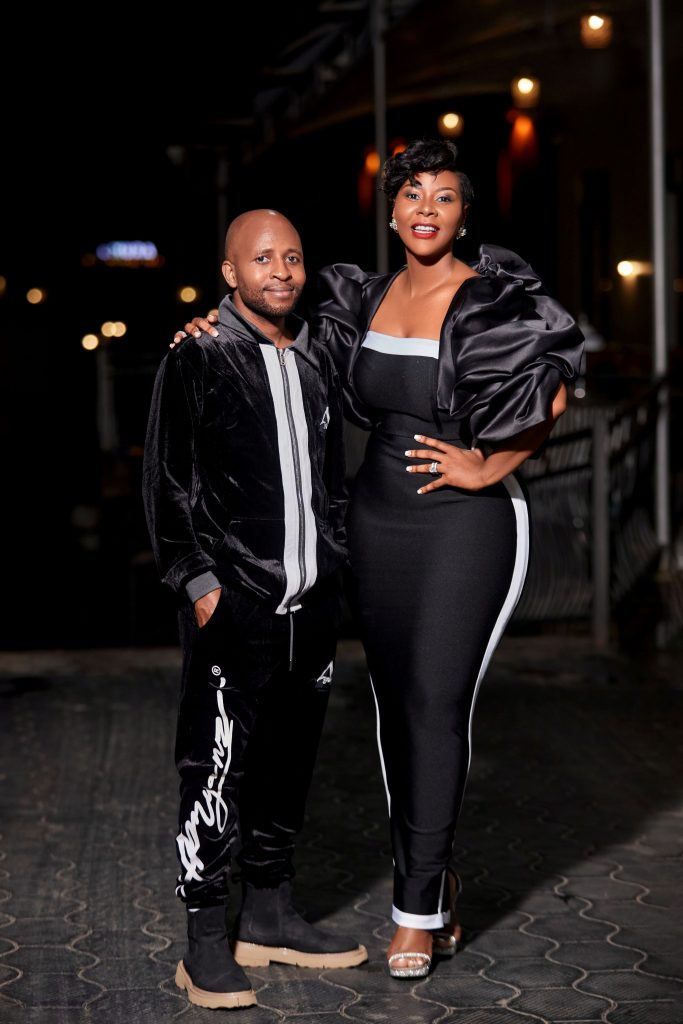
Not long after, I began working with Jackie Chandiru, my first professional client based on what she had seen me do on social media for others. Right after her wedding with Nol Van Viliet. With Jackie, I handled her phone calls, hospital reviews, correspondence, and organizing the premieres for her music videos Omukwano and Wotuuse at Club Ambiance in September 2014. Personal Assistance. I remember the music premier stint had NBS and Tusker Lite onboard who supported the evening. I invited Peter Nawe (wrote Wotuuse), Nico Jah (Videographer of both videos), Jackie’s mom and her aunt Vickie who turned up to support this work. Jay trusted me implicitly. It was an exciting short time, but soon Jackie fell ill and needed hospitalization, shifting the focus of our work. I then began working with other notable figures such as Diva Awards Afrika, Angella Katatumba, Judith Heard, and Desire Luzinda and the story has never been the same. When she got out of hospital in 2019 we reconnected til we both got busy and are in touch, progressing and supportive of each other when need calls.
Phase 3: University Beginnings
In 2013, I joined Makerere University. A fresh-faced student, full of wonder about what life would be like with newfound freedom and friends. Through the government-allocated hostel, I met three incredible individuals who became more than friends—they became my brothers. That is Charles, Timothy, and Edwin, two school years ahead of me, took me under their wing and showed me the ropes of university life. You either hung yourself or see others do should you focus and protect yourself. You choose. I was not used to the wilderness I found with established students including strikes and all the porridge night events. Haha. So most times I was overstaying at the school side or at my friends’ hostel. There was a time I was staying out on excuse i am watching Tusker Project Fame. Haha.
I consider Timothy to be my bestest friend up to now. He’s the perfect replica but opposite of me. How confusing is that?!?! But Charles and I were evidently different but he protected me and cared for me as a young brother. While he was all about cinema, football, and outings to Acacia and Naalya, I was drawn to the solitude of the computer lab, where I spent countless hours downloading music and exploring the digital world. Facebook was the thing then. He’d always try to convince me to join them, but I was happy with my music and virtual escapes. We shared a bond that transcended our differences, and when the semester ended, the boys would still visit me during the holidays, forging memories I still cherish today. They are older and were already working so we had different schedules most times.
Time passed, and life naturally pulled us in different directions. Timothy joined the army, disappearing into a world I couldn’t imagine. He called me one day from an unfamiliar number, dropping cryptic hints about his whereabouts. It didn’t take long to figure out he was deep in military training, a thought that made my heart sink. I imagined the grueling torture, the isolation, the wild animals they faced in the jungle… On his birthday, two years later, I sent him a cake all the way to a certain national park via bus—a gesture that touched him deeply. “A birthday cake and gifts mysteriously from Bryan Morel in Kampala straight to the bush?” He is always shocked. I also used to send his favorite toffee sweets, although sometimes the bus conductors ate them instead before reaching destination! Haha.
Okiria survived the army, becoming a normal citizen, marrying, and finding happiness. When we reunited after his training, we hugged, laughed, and revived old memories. I am forever grateful for his friendship—he is one of the best things that ever happened to me.
Phase 4: Shifting Priorities and Personal Growth
As my career in personal assistance, public relations and celebrity management started to take shape, I found myself increasingly distant from old friends and family. It wasn’t intentional—life just became overwhelming. Between running publicity campaigns, handling celebrity clients, and managing my personal responsibilities, I struggled to keep up with everyone. I betrayed to admit that perfection is a fragile illusion where it takes the smallest of cracks for it to shatter completely. I started to mistrust myself. Sometimes I tell myself to stop caring. I didn’t like it. I often found myself retreating from WhatsApp groups, overwhelmed by the constant notifications and the assumptions people made about my success based on appearances. Wearing a nice shirt for a client meeting doesn’t mean you’re flush with cash—it’s just part of the job.
This distance was misunderstood. Some friends and family members took my withdrawal as a sign of arrogance, while others assumed I had failed them in some way. But my perspective on success has always been different. What mattered to others didn’t always resonate with me, and I had to learn to prioritize my own path. Thankfully, my family especially mom Jovia Kyarimpa, sisters Doreen, Prim, Annabel, Oliviath, and brother Reagan stuck by me, always reminding me that it’s my life to live and that everyone’s journey is unique.
Phase 5: Life’s Unexpected Trials
University wasn’t just a time of bonding and growth. It was also when I faced some of the most challenging moments of my life. I’ll never forget the night in 2014 when we were attacked by robbers at our hostel. Charles had an exam the next morning and had been studying all night while the rest of us dealt with the usual distractions—loud music from the neighbors and late-night chatter. Suddenly, the door rattled, and before we knew it, the thieves broke in. One of them had a long neck shorter to a giraffe’s. Another threw a brick that hit Charles square in the head.
In a blur of chaos, Charles grabbed a flat iron and swung it at the intruder, while I screamed for help. We managed to scare them off, and I rushed Charles to the hospital in the morning so he could make it to his exam the next day. That night was one of sheer terror, but it showed me how unpredictable life can be and how close I was to losing someone I cared about.
Fast forward to 2018, I was renting a house for my brother Reagan in another area in Kampala. One night after a charity event for the Desire Luzinda Foundation, thieves broke in while we were asleep in the bedroom at 4am. They stole my brand-new 55-inch TV, a hard drive containing a client’s music catalog, and UGX 13,700,000 in cash. It was one of the most dangerous experiences I’ve ever had. I woke up to the sound of them rifling through the living room, and when I realized what was happening, I tried to fight them off. Luckily, they fled before causing more harm, but the trauma of that night stayed with me. The client understood the situation. Luckily I had backed up all of the content. I made a file with the police and was tipped off that the security of the house where we lived had connived with the thieves. Crazy. That’s when Covid hit and I had to send Reagan to stay with our big sister Primu in Matugga where security was guaranteed.
Covid found me with Judith Heard’s family. She asked me to stay with her kids and family while she was undergoing a divorce aftermath and the trauma of contracting Covid when she had traveled to Tanzania and the government told her to seek quarantine away from her loved ones. All that period was one full year 2019. The second half I rented an apartment with Judith at Kash Gym where we stayed together for 5 months. We used to do instagram lives on nutrition and parenting. I remember I Coordinated a biography interview of Judith and Bish Films. Then in the 2020 second lockdown I had to get a house for my brother Reagan and Ken still in Muyenga where we stayed together for 1 year till they also were ready for independence and they moved out. I had started going to the gym and it was all lovely. Life has never been the same after the Covid situation. The independence and clearly conforming to the ideology of ‘you have to work for the good’. During the Rona times I was supporting both Sheilah and Desire mostly online and through Boda boda. Same with Judith who was staying an hour walk from us. One day I walked to visit her. She was happy.
Phase Four: Finding Solitude Amidst Chaos
Life continued to throw challenges my way, but I learned to navigate them, not by cutting people off but by choosing when to engage. Privacy became essential to my healing process. I had to step back and focus on myself—my growth, my career, and the things that mattered to me. COVID-19 was a period of reflection, of reevaluating my priorities, and finding peace in the solitude.
Through it all, I’ve come to understand that life is not about pleasing everyone or conforming to their expectations. It’s about maneuvering through the phases with resilience, cherishing the moments of connection, and finding strength in the trials. And while my journey is far from over, I now embrace the uncertainty, knowing that each step brings me closer to discovering my true self.
Chapter 6: The death-row Role of a Personal Assistant
Being a personal assistant in the entertainment industry isn’t just about managing schedules. It’s about being a friend, confidant, and sometimes even a target. The job required me to work awkward hours, listen to the unlistenable, and handle the immense pressures of the public eye. Some journalists became family and others hated me for not giving them the scoop.
During one of my clients’ private functions that became the center of attention across the country, Journalists wanted to flook it and I commanded my security to block them. I hated it. I remember at the same function that later became a music video, one of the snoops’ cameras was confiscated at my command because they paid off security to secretly allow them in… I saw the cries of the photographer to lose his camera Chip and not deliver after being paid by a media house and I had no option because they were gonna sell the clip to the media and I would be castigated. Well, I found a way to flash the content off his camera and later sent him his equipment days after. One day Levixone told me that I should continue playing my cards right or even smarter, otherwise my job can get me in a dilemma or even death. This statement lives rent free in my mind. It’s a strong statement.
An estranged friend and ex-friend of one of my clients confronted me and started telling me dirty experiences about her. Evil words in a public place at a prestigious hotel. All set up. I’ve never recovered from such an incident. My client also got angry at me while narrating the ordeal to her because she expected me to defend and fight back. But over something I didn’t know??? I didn’t know where all this was coming from. It was a struggle. All this was over the phone because this client lives abroad.
The guy used a lie through my other client to sit me on a table so he can pour out. And changed the course of the story to controversy. But my calmness and humility played safe. Not even the hotel people got to know. I had no option but to tell the client because if anything it was personal speech whose intention was not understood in the first place. Both the client and I were safe.
I quickly realized that managing public figures also meant managing their egos, relationships, and sometimes navigating dangerous social dynamics. It was not uncommon to find myself working with individuals who didn’t like each other, but they all liked me. It was a delicate balancing act, and sometimes I found myself attempting to bridge these fractured relationships. But it became clear that certain people were better left independent of one another.
Chapter 7: Building BM Publications
By 2021, the demands of my role had become overwhelming. While I cherished the personal touch I brought to each client relationship, it left little room for my personal growth. Many of my clients preferred working directly with me, but I knew I needed to evolve. It was then that I decided to form BM Publications, a team of personal assistants and publicists that could handle the workload, allowing me to step back and focus on my own personal development. Professional services.
Services offered include personal assistance, executive assistance, Wikipedia editorial, copywriting, pitch and endorsement, graphic design, EPK development and social media management.
Some clients didn’t like the transition, preferring my one-on-one involvement, but the change was necessary. This team structure allowed me to expand, both professionally and personally. I remained consistent where I could, learning from my mistakes, and over time, the team began to thrive although operating on adhoc basis based on per project/task at hand.
Chapter 8: New Horizons, New Clients
Since forming BM Publications, I’ve onboarded new clients such as Sarah Mulindwa, Jerry Fisayo Bambi, Azeezah Hashim, Sina Tsegazeab, Lumala Abdu and Atong Amos. Together, we’ve won awards, secured regional nominations, and expanded our reach internationally. The experiences have been enriching, and I’ve had the opportunity to travel and explore new horizons. But even as my career grew, I found that my journey of self-discovery was far from over.
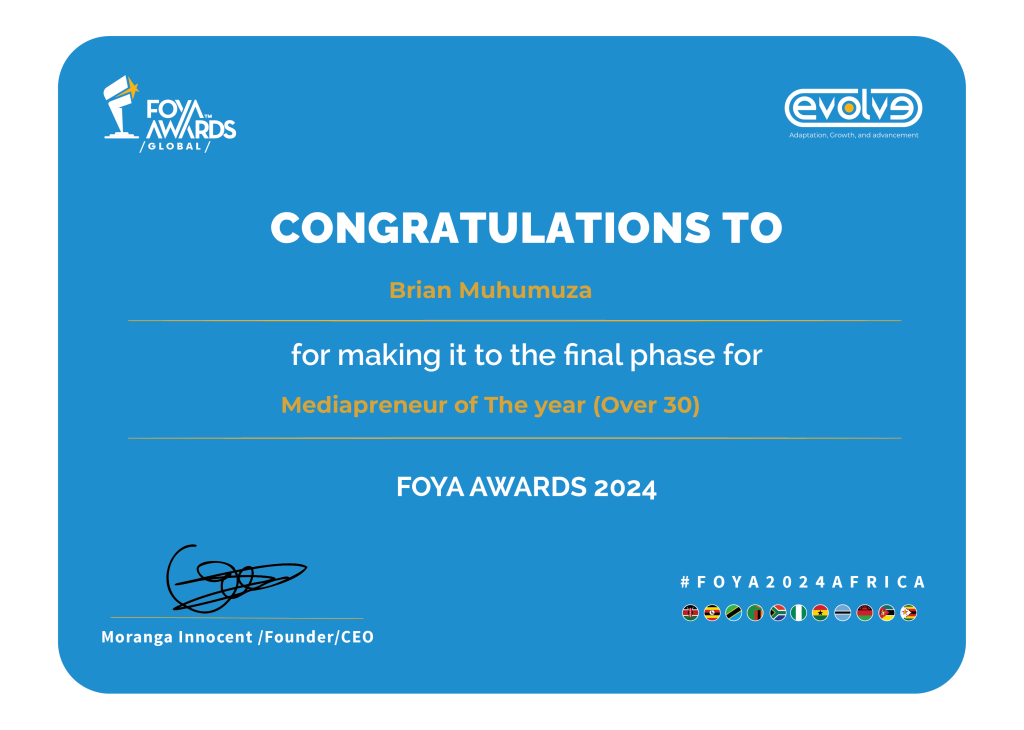 Chapter 9: The Price of Triumph
Chapter 9: The Price of Triumph
The entertainment industry is not for the faint of heart. As a Black man in a predominantly Westernized field, I’ve often found myself having to work twice as hard to be recognized. And to think smart. Smart work is actually better than hard work. I started believing what I had seen work. The cost of success is high, and many times I’ve had to take unconventional routes to get a seat at the table.
Sometimes wrong perceptions and wrong reporting. Other times crucified for just allegations around clients. Embraced being the target shield to many, it’s fine.
In 2019 Lawrence Ogwal at Daily Monitor reported how I had run broke resorting to selling second hand shoes after a WhatsApp status advert I made. Actually they were shoes from one of my clients Desire that we were running for charity whose proceeds would go to UpLife A child in Lungujja, I didn’t mind as many bought them after reading the article that ran on their Sqoop sub-website. The headline was, Angella Katatumba’s manager now selling second hand shoes. Angella sent me the link. She was not happy and perplexed but I explained. Such a mix.
Despite the challenges, I’ve managed to create a space for myself, though the path hasn’t always been clear. With a solid team now in place, I’ve been able to learn balancing personal life, family, and my philanthropic work more effectively. But even with these accomplishments, the freedom to fully pursue my personal desires remains elusive.
Oh the media, the zeal to push my clients and friends into clean media, staying behind the scenes has worked and not worked as I find myself entangled to do some media placements for myself too. So far I’ve been featured on Glamor South Africa, UBC TV, WhoWns Kenya, BellaNaija, Cloud TV Tanzania, MyJoin Online Ghana, WhoOwns Kenya, New Vision, GlamSquad Nigeria,
In 2023, I was nominated as an intercontinental publicist in The Future Awards Africa Nigeria and I couldn’t make it to Lagos. My friend Oluwa Daniel (a movie actor and screen playwright) who I had met and befriended via Instagram from the Forty Under 40 Awards in 2021 represented me and picked my prize covet. I was overjoyed not because of the nod but the power of continental brotherhood I found in Olu.
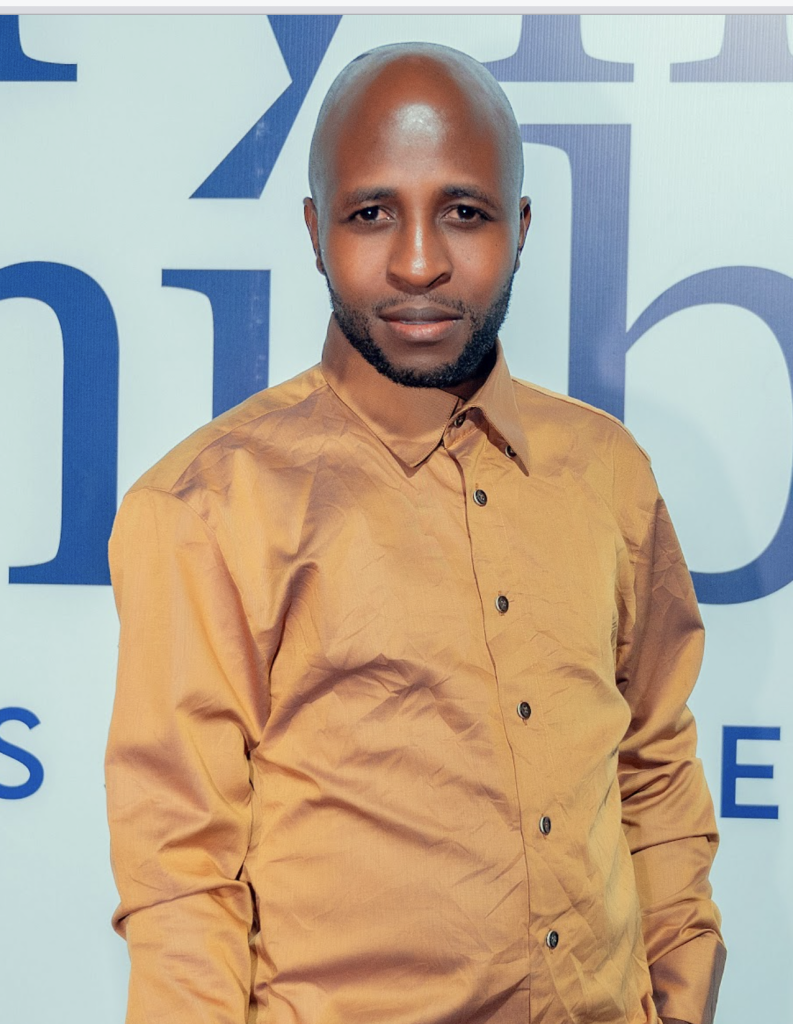
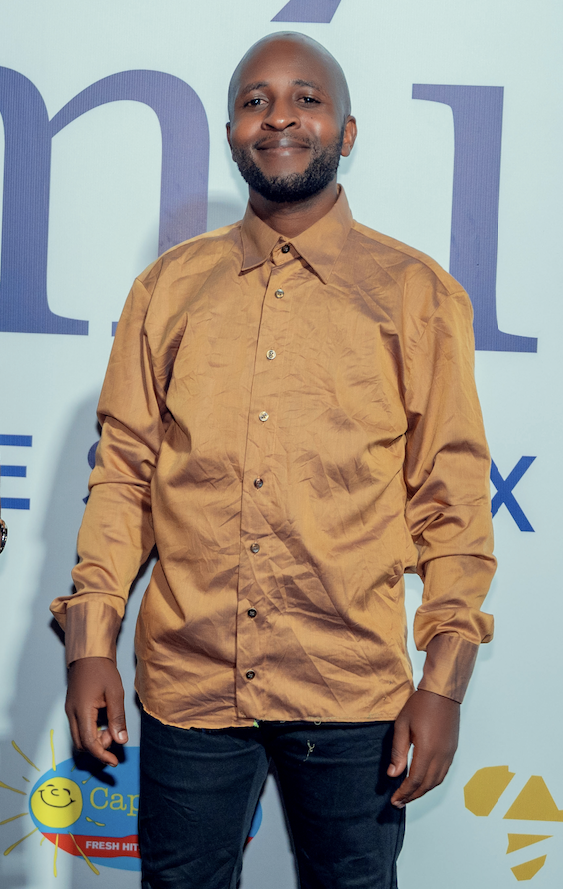 When i moved and planted 2000 trees from Uganda to Kenya
When i moved and planted 2000 trees from Uganda to Kenya
The 31st of March 2024 will forever be in my memory, not just as an ordinary day but as a turning point in my journey toward making a tangible impact on environmental conservation in Africa. For years, I had dreamed of combining my travels with meaningful, social impact-driven work. This dream became reality when I embarked on an ambitious project—planting 2,000 fruit and medicinal trees in Kenya, a project that filled me with pride.
I had always told myself that once I began, I wouldn’t stop. My goal was clear: to inspire and empower the countries I visited through my organization, Kyarimpa Cares. The ripple effects of environmental conservation were undeniable, and I wanted to be part of that change. The project was a collaborative effort with key partners like the Uganda National Forestry Authority (NFA), the Judith Heard Foundation, and the Kenya Young Parliamentarians Association (KYPA), all of whom helped transport these 2,000 trees from Uganda to Kenya.
My trip to Nairobi coincided with the prestigious Forty Under 40 Africa Awards, where my agency, BM Publications, proudly celebrated five client nominations. Among them, Sina Tsegazeab of Natna Hair emerged as the winner. Others were Judith Heard, Desire Luzinda and Marjorine Nantambi. The sense of accomplishment was exhilarating. As an alumnus of the awards, I had posted on Instagram with optimism, predicting potential wins just hours before the ceremony. Little did I know, that would be just the beginning of a series of uplifting events.
Easter Sunday, March 31st, found me in Nairobi with seemingly no major plans other than catching up with my long-time friend, Hon. Antony Buluma Samba, a Kenyan legislator, and spending time with the team that had accompanied me from Uganda. However, what began as an ordinary day quickly transformed into something far more meaningful.
I woke up that morning and took an Uber into town with my favorite driver, Timothy Munene Muteki. My friends, who had initially planned to join me for the afternoon’s tree planting event, decided to meet other friends instead. But I wasn’t deterred. I connected with Antony, and he agreed to meet me at the mall, where we would begin our journey. After picking up the trees from my AirBnB, Antony and his wife, Gettie, joined me for what would be an hour-long drive to Life 4 Kids School in Kitengela, a sub-region on the outskirts of Nairobi.
As we made our way through the sprawling municipal areas, Antony and his wife Gettie gave me a tour of Kenya’s industrial heartlands. The road trip itself was eye-opening, but what touched me most was the spirit of the people. Along the way, we picked up his constituents and family members, all of whom were eager to join us for the community event. Their enthusiasm was contagious.
When we finally arrived at Life 4 Kids School, we were greeted by the warm smiles of children who had been eagerly awaiting our arrival. Their joy was palpable, and as they sang and prayed, I felt a deep connection with the community. We spoke about the importance of environmental stewardship, particularly in light of the severe droughts that had been ravaging East Africa. I emphasized the role they could play as goodwill ambassadors for Mother Nature, teaching them that the responsibility to protect our environment lies in our hands and specifically theirs.
One of the moments that stood out for me was learning Swahili church hymns alongside Antony’s family and other locals. The sense of unity in that place was overwhelming, a true testament to the power of community. These hymns were more than songs; they were a reflection of the spirit of resilience and hope that these people carried with them. Clearly Kenya had become my second home country after Uganda because of the constant bond made with such young souls.
The planting itself was a symbolic act. Each tree represented more than just a future fruit-bearing plant—it symbolized a step toward healing the Earth. I encouraged the local students to take up the mantle of afforestation ambassadors, urging them to spread this movement wherever they went. Trees are more than just part of the landscape; they are an integral solution to combating climate change, supporting biodiversity, and enhancing the quality of life for communities. My motivation for this initiative stemmed from witnessing firsthand the devastating effects of environmental degradation in places like India, where dust, heat, and pollution had rendered the air almost unbreathable.
“My contribution to the future of this planet is to promote humanitarianism, unity, and reforestation efforts,” I told one of boys as waited for a watering can half full of water. “We all have a responsibility—both individual and collective—to maintain and improve Mother Earth. It starts with small actions, like planting a tree, and builds into a movement.”
From the school, we proceeded to New Life Pentecostal Church, where I had the honor of meeting Archbishop Dr. Dan Migosi, a renowned spiritual leader in East Africa. He thanked me for instilling in children and youth the mindset of afforestation, a message that resonates deeply with my values. As the founder of BM Publications, my vision extends beyond the borders of media and public relations—I aim to foster a world that is positively connected, sustainable, and equitable through storytelling, philanthropy, and activism. I felt happy representing national values and also learning from Antony’s family, country and East Africa as a whole.
This initiative in Kenya was just one of many efforts driven by my passion for environmental activism. Through Kyarimpa Cares, I’ve continued to collaborat with individuals and organizations that share my vision for a better world. Whether it’s afforestation, refugee support, or women’s empowerment, I believe in the power of collective action to drive change.
As I left Kitengela that evening, my heart was full. The experience had solidified my commitment to environmental advocacy, and the relationships I had formed during the process were invaluable. It wasn’t just about planting trees; it was about planting seeds of change.
Recognition has come in many forms, from being a Forty Under 40 Africa nominee to being acknowledged as a pioneering AFRICA’S FOUNDER OF THE YEAR mediapreneur shaping the role of publicists and personal assistants in Africa’s entertainment landscape. But it’s these grassroots efforts—getting my hands dirty and working directly with communities—that truly fuel my passion. The work is far from over, but each small step brings us closer to the connected, sustainable world I dream of.
We must all take action, no matter how small, because the future of our planet depends on the choices we make today. And so, I invite you—whether you are in Nairobi, Kampala, or anywhere else in the world—to join me in this mission. Together, we can ensure a greener, healthier, and more just world for generations to come.
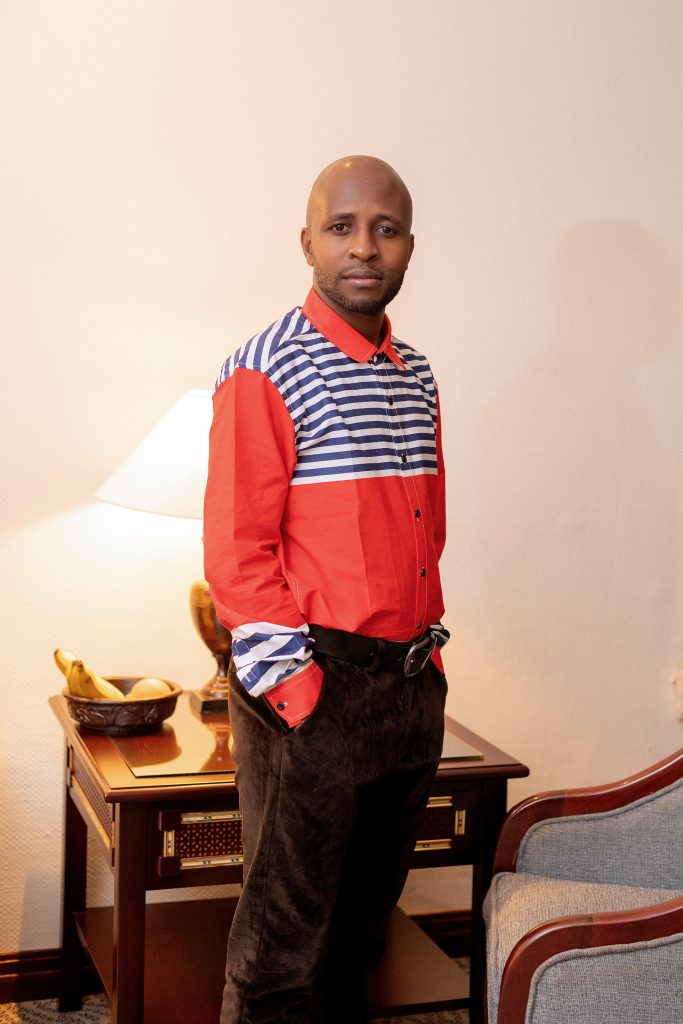
My water phobia amid the deep end
Growing up, water was never something I feared. In fact, as a child, I’d often find myself near it, whether at the shallow ends of lakes or tiny pools that formed after the rains. My home village in Kacheera there’s a lake, an extended arm of Lake Mburo from Lake Victoria. Now you know. But the year 2007 changed everything. I was in Senior 1 at St. Gonzaga SS in Lyantonde, staying with a close classmate of mine, Ruth Mirembe, a girl from Mukono whose father was an engineer. We were practically inseparable. Ruth had a lively spirit, always pushing us to explore and try new things. But one fateful afternoon, she pushed us both too far.
That day as a group decided to go swimming in a pond—a harmless bit of fun, we thought. The water was murky but inviting in the heat of the sun. We laughed as we waded in, but moments later, everything changed. In a blink, Ruth slipped beneath the water’s surface. She never came up. Panic set in, and despite our frantic efforts, we couldn’t save her. My heart broke watching her peers including me mourn, the weight of her death sinking into my chest like an anchor. At just 16 years old, I had witnessed death in the most harrowing form. From that moment, water became my enemy.
I developed an instinctive fear—hydrophobia—that clung to me like a shadow, shaping the decisions I would make for years to come. It wasn’t just fear, it was pure dread. Water, in any form, reminded me of the tragic loss of a young life and the helplessness I felt.
Years passed, and life moved forward. But the fear of water stayed with me, buried just beneath the surface. Occasionally, it would rise up unexpectedly, as it did recently during a’ investigation with police officers for one of my clients. We had traveled to Masaka Road, deep into a rural land dispute case. Everything seemed routine, until the officers decided to take a shortcut on our way back. “We know these roads better,” they confidently told the driver.
Suddenly, the scenery changed. We approached a body of water, something I hadn’t anticipated. I assumed we were stopping to greet fellow officers or check in at a nearby police unit. But to my surprise, they had different plans. “We’re going to use the ferry to cross,” one officer casually mentioned.
My heart sank.
No one had mentioned a ferry. A wave of panic washed over me as the car approached the water’s edge. I asked about life jackets, clinging to the hope that something—anything—could provide me with the comfort I desperately needed. “Don’t worry, we’ll give them to you once you’re seated,” they assured me. But as I boarded the ferry, it set off without any sign of those jackets. I felt completely vulnerable, trapped in a 25-minute ride across the water that felt more like an eternity.
I remember pulling out my phone and texting Desire Luzinda, a close client and friend who was living abroad at the time. I told her how frightened I was, how my fear of water had resurfaced in the most unexpected of ways. Her response was immediate, offering comfort from a million of miles away. She reminded me to breathe, to stay calm, and reassured me that I would be fine. Though the panic didn’t fade, her words anchored me, keeping me somewhat grounded.
Looking back, I’ve realized that our fears are often tied to moments in our past that leave us helpless, broken, or terrified. Ruth’s death imprinted itself on my soul, and no matter how much I’ve tried to move past it, certain experiences—like that ferry ride—have a way of dragging that trauma back to the surface. It’s moments like these that remind me how much power our minds hold over us, and how our emotions can either cage us in or help us grow.
What did I learn from that ferry ride? That sometimes, life throws us back into the deep end when we least expect it. But growth comes not from avoiding our fears, but from facing them—however uncomfortable that may be. Perhaps it was a test, a way for me to confront my phobia head-on. I wasn’t ready for it, but then again, are we ever truly ready to face our deepest fears?
Through this experience, I’ve come to realize that fear is a part of us, but it doesn’t have to define us. We can choose to let it consume us, or we can choose to take small steps toward conquering it. And as terrifying as that ferry ride was, it showed me that while fear is real, so is courage. I survived that day, and each time I face my fear, I inch closer to overcoming it.
In the grand journey of life, fear will show up—sometimes when we least expect it, in forms we can’t predict. But each time it does, it presents us with a choice: Will we let it hold us back, or will we move forward despite it?
For me, the answer lies in moving forward, one step at a time, learning to trust not only the waters around me but the strength within me.
Travel to India – Climate Change, culture and unlearning
When the opportunity arose for Judith Heard, a client of mine, to compete in the Miss Environment International Pageant in India, the task ahead seemed insurmountable. The pageant had a strict age limit, far below Judith’s age, but her influence and reputation as a global fashion icon made the organizers consider her participation. I wasn’t sure how we would manage, but as Judith’s agent and newly appointed Country Manager for Uganda in the pageant, I knew we had to take up the opportunity. Our goal was to break boundaries, and so we did, leading a social media campaign and securing sponsorships for the journey.
Judith, well-known across the continent and often likened to Naomi Campbell, was the most visible candidate online with a verified Wikipedia page and a strong presence, yet despite this popularity, resources for the trip were scant. Even on the eve of our departure, I was unsure if I’d join her, but Judith was resolute. Her determination was contagious, and when we finally embarked on the trip, it was a great.
Cultural shifts and Challenges
Landing in Mumbai in 2022 brought both excitement and stark realizations. India, with its solid culture, diverse people, and rich history, was a sensory overload. We faced cultural differences, including challenges with food. Judith found it difficult to eat the local spicy cuisine, relying mainly on juice, while I slowly adapted, thanks to the tips I picked up from fellow contestants. By the end of the trip, I had grown to love pepper and spicy food, something I brought back home with me to Uganda.
While the competition featured countries like the UK, Belgium, USA, Bolivia, Zimbabwe, and others, late entries ha;fway through the competition from Nigeria and Tanzania added to the dynamic mix. However, we encountered some subtle racism and exclusion, not from the contestants, but from external figures involved in the event. Yet, this only solidified my belief that, despite our differences, we all belong to one human family. It was a learning curve for us, and I chose to focus on the positives of cultural exchange and the valuable lessons from the journey.
Still of the more unexpected challenges was adapting to the food. Having grown up with only mild exposure to red pepper, the spicy cuisine of India was a shock to my system. Judith struggled more than I did, barely eating anything beyond juice for the majority of the trip, and eventually losing weight. For me, however, it became an acquired taste—pepper and spice became part of my culinary life after the trip, something I now enjoy back home in Uganda. Also Judith’s LB drop helped her to have a striking figure for the editorial and runway modeling activity.
Cultural Discovery and Worldview Shift
India, with its intense diversity and contrast, taught me invaluable lessons. Despite the unbearable heat, bustling cities, and cultural differences, I realized that we, as human beings, are all deeply connected. The country’s historical richness and the people’s warmth left a mark on me, leading me to see beyond the cultural boundaries and focus on the values we all share. The pageant itself, which featured cultural events such as Miss Creativity, Miss Talent, and a beachside dinner party, became more than just a beauty competition. It was a keynote to the resilience of shared human experiences and global collaboration.
For three weeks, I saw Judith rise as a true contender, eventually earning the Miss Africa title. We attended numerous events, including club sessions, cultural dinners, and semi-final rounds, meeting new friends and partners who would later shape my career. Despite the long flights and layovers, such as the one in Chalujah near Dubai, each part of the journey was filled with meaning.
Career and worldview transformation
This trip wasn’t just about accompanying a client to a pageant. For me, it was a journey of self-realization and a deep dive into the world of international collaborations. It strengthened my role as an agent and philanthropist, broadening my network. New clients emerged from the pageant, and Uganda’s support—particularly from the media, Air Arabia, and fashion designers like Kai’s Divo Collection, Chenko Fashions, and Agnes Agimo—highlighted the collaborative potential we often overlook. These connections helped set Judith’s profile on a new format.
When Judith returned to Uganda with her Miss Africa crown, she received a heroic welcome at the airport and was even awarded an official passport. This moment wasn’t just her victory—it was ours as a team, and it marked a significant moment in my career, affirming that stepping out of one’s comfort zone yields remarkable opportunities.
Lessons on Climate Change and Global Citizenship
One of the most impactful parts of this experience was realizing the urgent need to address climate change. Miss Environment International wasn’t just a beauty contest; it was a platform to discuss how every corner of the globe is affected by environmental challenges. Coming from Uganda, a country rich in natural beauty, I thought I had a grasp on environmental issues. However, witnessing firsthand the pollution, dust, and extreme heat in India opened my eyes to the broader climate crisis we all face. This experience inspired me to champion more sustainable causes in my philanthropic work through Kyarimpa Cares.
Traveling across different cultures, experiencing kindness amid adversity, and seeing the global unity needed to tackle climate change transformed how I view the world. It solidified my belief that, regardless of where we come from, we are all part of one global village, interconnected by shared challenges and opportunities.
India’s climate reality and the call-to-action
One of the most eye-opening parts of our experience in India was witnessing the tangible effects of climate change. The air was thick with dust, and industrial fumes filled the cities. Trees were scarce, and the relentless heat was almost unbearable. While these were shocking contrasts to Uganda’s lush greenery, it wasn’t a reflection of India as a nation but a harsh reminder of what climate change is doing to our world. India’s rapid industrialization, like many other developing nations, faces the challenge of balancing economic growth with environmental sustainability.
I realized how urgently we need to address the climate crisis, not just in India but globally. Upon our return to Uganda, we launched a plastic recycling and tree planting campaign under the Judith Heard Foundation. This initiative was driven by the lessons we learned in India. We wanted to take action to ensure Uganda remains green and vibrant, and to inspire other nations to prioritize sustainability. Through the foundation, we sought to address environmental degradation and encourage a culture of conservation.
Coming from Uganda, a country rich in natural beauty, I thought I had a grasp on environmental issues. However, witnessing firsthand the pollution, dust, and extreme heat in India opened my eyes to the broader climate crisis we all face. This experience inspired me to champion more sustainable causes in my philanthropic work through Kyarimpa Cares.
The three-week trip to India was a journey of personal growth and career development. Judith rose to more activism prominence, eventually earning the title of Miss Africa, while I deepened my network, secured new clients, and strengthened my role as a philanthropist. I found myself evolving professionally, as new clients recognized the talent and work my team had to offer.
Through the Miss Environment International platform, I was reminded that the environmental challenges we face are not isolated to one country. Whether in India or Uganda, we all share the responsibility of safeguarding our planet. It also reaffirmed my commitment to step out of my comfort zone, embrace new perspectives, and foster collaboration across borders.
A musical argument about Lecresia Campbell and Whitney Houston
In 2015, my life took a remarkable turn when I crossed paths with Angella Katatumba, a singer and philanthropist I had long admired. Our connection was instant, forged by a shared love for music and a mutual respect for each other’s ideologies. Meeting Angella felt like the culmination of a dream—she was not only a celebrity I looked up to, but also someone who would become a close friend, adviser, and trainer in many aspects of my life. Angella’s attention to detail and work ethic shaped me in ways I didn’t expect, but it was our playful arguments that often brought us closer.
One evening in 2018, our friendship reached a new level over an amusing yet passionate debate about music. We were lounging, as we often did, talking about our favorite singers. Suddenly, I mentioned that I thought Lecresia Campbell—a gospel powerhouse known for her soulful renditions—was a better vocalist than Whitney Houston. I could see the surprise flash across Angella’s face. Her love for Whitney was deep-rooted, and I had unknowingly lit a spark in her.
“Better than Whitney Houston?” she asked, raising her eyebrows, as if daring me to explain myself.
I stood my ground, pointing out Lecresia’s incredible whistle notes, her sustained head voice, and the sheer emotional depth of her performances as heard I songs like ‘Magnify’ . I admired Lecresia’s ability to manipulate her timbre, moving between notes effortlessly, and how she had a spiritual resonance that felt untouchable. But Angella was not having it. She shook her head, clearly preparing her counterargument.
“Whitney Houston is the definition of vocal perfection,” she began, grabbing a piece of paper to break down her points. She listed Whitney’s immaculate melisma, the strength of her chest voice, the way she transitioned into her head voice with such ease, soft singing and her ability to control every aspect of her vocal performance. Angella highlighted Whitney’s softness when needed, but also the raw power that could fill stadiums. Her ability to sing across octaves, deliver power notes, and still maintain control left an indelible mark on the music industry.
As Angella went on, I couldn’t help but admire her passion. She explained how she had trained herself in college and high school, using Whitney’s songs as vocal exercises. She even walked me through Whitney’s influence on modern-day artists, including some of my own favorites like Brandy, Jennifer Hudson, Deborah Cox, Juliana and Iryn Namubiru. By the end of the conversation, I had a new appreciation for Whitney Houston’s vocal prowess, thanks to Angella’s passionate defense.
Our argument was lighthearted but full of depth, and it only solidified my respect for Angella—not just as a friend, but as someone who truly knew music inside and out. I couldn’t help but laugh at how fervently she had defended Whitney, and I had to admit, she had made me love Whitney more.
That debate was just one small moment in a series of unforgettable experiences I shared with Angella. Beyond our music discussions, we spent the better part of 2015-2023 attending functions together, editing write-ups, handling media placements, and performing at various events. Despite times when we took breaks over misunderstandings which I admit was from my side I still rose and rose to be apologetic, obedient and true to my feelings. I had the privilege of managing her social media, handling her phone calls, and working alongside her in the studio. It wasn’t just work—we became close collaborators, often finding ourselves at concerts, charity events, and even clubs, always sharing ideas and pushing each other creatively.
Angella’s songs, especially Together Forever, Darling, Wendi, Emotional, Forgiveness, All About You, and For You Gulu, showcased her versatility. I could hear echoes of Toni Braxton and CeCe Winans in her low register, high alto range, and her ability to convey emotion with a varied timbre. Her voice, like fine wine, only improved with age, and her command over her tone was unmatched. To me, she was a living legend, someone whose music has soul and power, but also grace.
My role in Angella’s life evolved from being a personal assistant and promoter by 2017, but my admiration for her never stopped. Together, we worked on some memorable projects, including the Mulago Yaffe charity concert, where funds for the Uganda Cancer Institute was raised. We also helped fundraise for the Angels Center for Children with Special Needs at Hotel Africana and collaborated on major international events such as the African Union performance and the UN Humanitarian Summit. These projects were more than just work—they were milestones in my career, and I’ll forever be grateful for the opportunity to support her.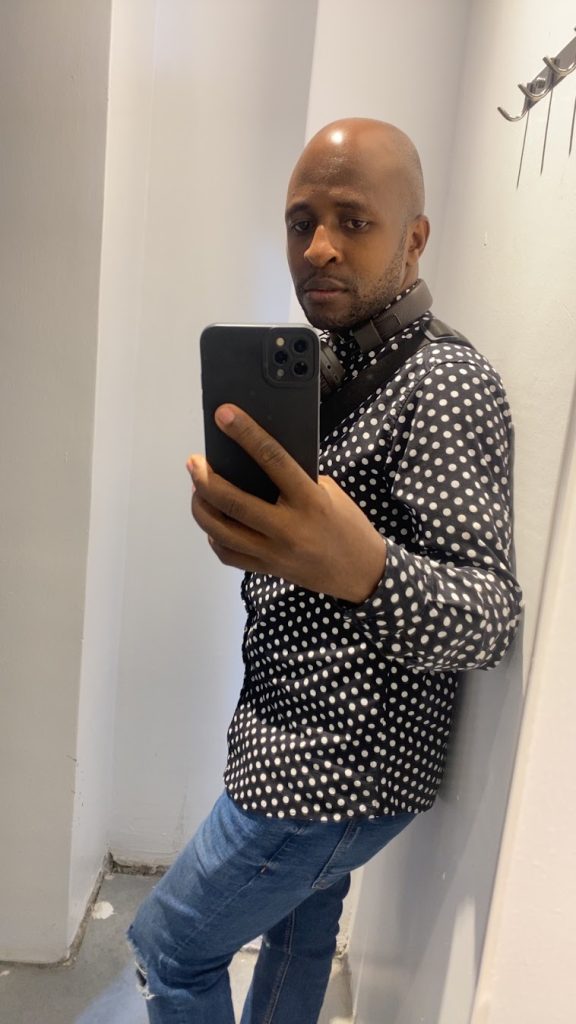
Angella Katatumba didn’t just teach me about music—she taught me how to pay attention to detail, to strive for excellence in everything I do, and to believe in myself. Her guidance helped shape my career, and I’ll always be indebted to her and her family for their support. Her beauty, both inside and out, and her powerful voice remain unforgettable to me, but it’s her impact on my life that I cherish most.
Looking back on our journey together, from the heated arguments and confusions about what’s next massaged by the sustained love for philanthropy and music, I feel incredibly blessed to have crossed paths with many people while I regret the trouble it continues to table. This truth has made me a better person. The morale should be rejoicing during the time spent with the love ones, minimizing time spent on social media scrolling. Sometimes I uninstall these Applications to deter Aligorithm. It works for me. Life is not just about winning a lion’s share, possession and victony (read victory), but about learning from the people you admire and growing alongside them. I thank God I am still here. I know it won’t be for long.
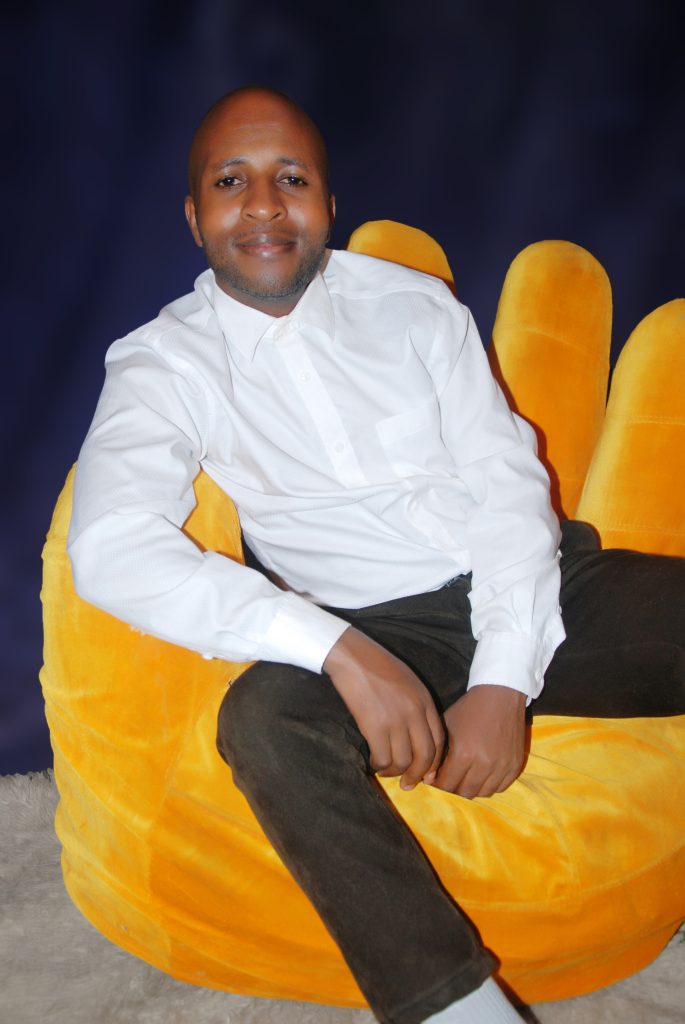
This post was created with our nice and easy submission form. Create your post!


